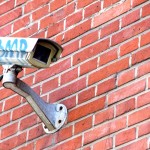Safeguard Your Security Cameras
These days, most of our devices are connected thanks to the Internet of Things. While this can make things more convenient for us, it can also leave us vulnerable to hackers.
There have been many public stories about cyber attacks and spying, from hacked baby monitors to internet outages. And while we may never see an end to cyber criminals, this proves that we can never be too cautious.
These unfortunate hacks can occur from unsecure Wi-Fi connections, open devices (no passwords), or malware attacks. Luckily, there are ways to combat attacks and minimize our risks.
Heed these cyber security tips that may apply to security cameras, webcams, as well as baby and pet monitors.
- Keep Your Internet Private
Employ a full-service security suite for your internet and keep it up to date. Use a strong, unique password and encryption to protect your network.
- Create Secure Passwords
Always change the default password that comes with your wireless networks and any of your devices. When choosing a password, remember to incorporate numbers, capital letters, and, when allowed, multiple punctuation marks. You should also try to use 12 digits, and avoid names, places, or anything that can easily be guessed. To ensure you’ve created strong and secure passwords, use a password checker.
- Keep Software Up-To-Date
As stated previously, keep all your devices and software updated as these help to patch any known or found vulnerabilities that allow hackers to gain access. Although this simple step can easily be overlooked, it is important to stay on top of these updates.
- Cover Cameras When They Are Not In Use
If your camera indicator light goes on without your permission, you can assume that your computer has been compromised. However, just because the light is off, you cannot assume that your camera is safe. Researchers have found that hackers can infiltrate and turn on webcams without activating the indicator light.
To err on the side of caution, keep your cameras covered. There are different types of patches, stickers, devices, and other products on the market that you can use. However, for an immediate fix, masking tape will suffice.
- Don’t Click That Suspicious Link!
If there is any uncertainty, do not click the link. Only download attachments or click on links from people you know and trust. If you were not expecting a message or attachment from a trusted person, be sure to check with them before opening or downloading anything.
- Avoid Using Unsecured Wi-Fi
Public Wi-Fi networks are prone to hackers so avoid them when you can.
- Check Your Camera Log
If your security system permits (most do), check the IP addresses that have accessed your cameras. If you find any suspicious IP addresses on your log, be sure to change your access codes right away and notify your security company.
- Manage Cameras Settings
Network connected security cameras allow you to remotely monitor your cameras via an app or a website. If you do not need this feature, turn it off.
- Consider A Separate Network
It may be beneficial to have one network for your phone and computers and another network solely dedicated to your security systems and other monitors.
Being an educated consumer will minimize your risk of becoming a victim. These security precautions promote safe use of personal technology and can go a long way for your cyber security. Connect with us on Facebook, Google+, Twitter, LinkedIn, and Pinterest to share your own cyber security tips.
Need quality security cameras and CCTV surveillance equipment? Look no further than SecurityCamExpert.com! Call 888-203-6294 to schedule a free* site survey, request a quote, or inquire about our installation services.
